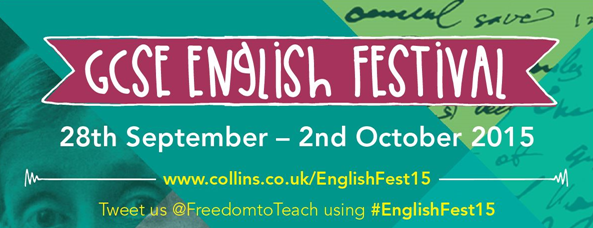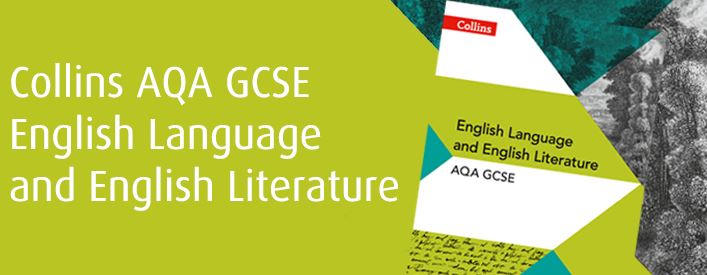Find out more about Collins GCSE English Festival here
As we come to the end of what has been a fantastic GCSE English Festival, we round up some of the week’s highlights. If you missed any of the week’s festivities, you can find links to all of our blog posts, videos and exclusive resources here, so you don’t miss a thing!
Day 1 saw us unpick one the greatest challenges facing GCSE English teachers this year: the re-introduction of the 19th century novel to the syllabus. English teacher and writer Naomi Hursthouse shared her expert insight on the five key challenges facing teachers and advice on how to overcome them both inside and outside the classroom. She shared tips on how to get your students to read the whole novel, get to grips with Victorian language, understanding the social and historical context of the novel and prepare for the closed book exam. What’s more, we shared our 5 top tips to getting your class excited for every lesson on nineteenth-century literature!
Read part 1 of Engaging All Students in 19th Century Literature
Read part 2 of Engaging All Students in 19th Century Literature
Read our top tips here
 On Day 2 Mike Gould, author of Collins AQA GCSE English series, shared his advice in a blog post on how to help your Year 9 students make the smooth transition from Key Stay 3 to GCSE. As Mike says, the key to helping your students prepare for the challenge of GCSE is through ‘repeated practice of an approach which eventually becomes second-nature’.
On Day 2 Mike Gould, author of Collins AQA GCSE English series, shared his advice in a blog post on how to help your Year 9 students make the smooth transition from Key Stay 3 to GCSE. As Mike says, the key to helping your students prepare for the challenge of GCSE is through ‘repeated practice of an approach which eventually becomes second-nature’.
 On Wednesday, we brought you a series of videos with our AQA GCSE English series editors, Jo Heathcote and Sarah Darragh, on the new 2015 GCSE specification, where they shared their expert insight on the changes to the curriculum and how you can approach them with the Collins GCSE English series. Catch up on all the videos below:
On Wednesday, we brought you a series of videos with our AQA GCSE English series editors, Jo Heathcote and Sarah Darragh, on the new 2015 GCSE specification, where they shared their expert insight on the changes to the curriculum and how you can approach them with the Collins GCSE English series. Catch up on all the videos below:
What is new in the 2015 GCSE specifications?
Timeline for 2015 GCSE English changes
New AQA GCSE English Language and English Literature resources from Collins
What is different about the Collins GCSE series?
What are the components in the Collins GCSE series?
 In the afternoon, we turned our attention to all things Shakespeare, with guest appearances from Collins Dictionaries and 4th Estate author Erik Didriksen. The day saw a whole host of blog posts, resources and an exclusive give away:
In the afternoon, we turned our attention to all things Shakespeare, with guest appearances from Collins Dictionaries and 4th Estate author Erik Didriksen. The day saw a whole host of blog posts, resources and an exclusive give away:
Will in the Words: a blog post of Shakespearean words in usage today
An exclusive blog post and lesson plan from Erik Didriksen, author of upcoming anthology Pop Sonnets
An engaging “Who said it?” quiz, perfect for making Shakespeare current and relevant in the classroom
 The penultimate day of Collins GCSE English Festival saw our Twitter chat, hosted by @UkEdChat
The penultimate day of Collins GCSE English Festival saw our Twitter chat, hosted by @UkEdChat






